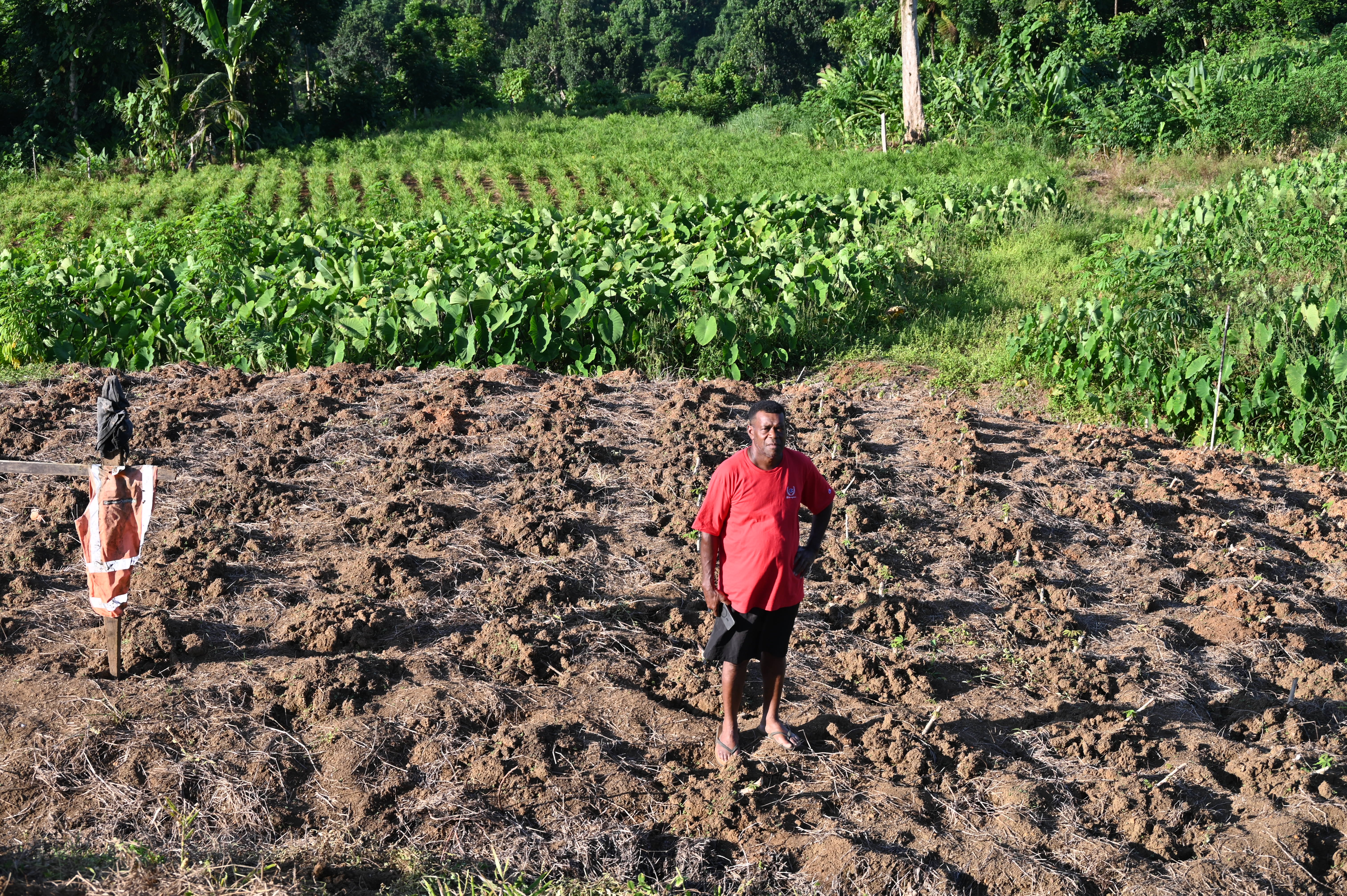JOSEVA’S JOURNEY THROUGH FARMING

Originally from Nabaitavo village of the Nabaitavo district in Naitasiri, Joseva Uluvula has always called Lomaivuna his home.
Since growing up, he was unsure
which path to take in life. It wasn't until 12 years ago that he made a
decision that would reshape his future, turning farming into a structured and
sustainable source of income.
"I decided to focus on
farming as a source of income properly," he shares.
This was the turning point that
led him to embrace agriculture as more than just tradition; it became his job.
From humble beginnings, Joseva
leased 10 acres of the mataqali land in Lomaivuna, carefully planting taro,
cassava, and ginger. He understood early on that the key to success lies in
planning.
"I established a plan two
years ago to plant two acres per year—one square chain per month, with one
square chain for cassava and one square chain for taro."
This structured approach ensured
continuous growth for Joseva.
Farming, like any profession,
comes with challenges, time management, seasonal cycles, and market stability,
all played a role in shaping Joseva’s journey.
"I am also a village person
and I know firsthand what it’s like living in a big village. From my experience,
time is often wasted on other things. When I decided to take farming seriously,
I realized we also need to approach farming as a full time job," he
explains.
He quickly learned that market
fluctuations could significantly impact farmers.
"Sometimes crops are ready,
but the market is unstable. Often, the time we begin farming and the time we
harvest don’t align with market demand, which leads to losses. It’s important
to counter this."
Yet, despite these hurdles,
Joseva saw firsthand how even small plots of land could yield big results with
the right strategies.
"I now see that great
results can come from small efforts," he says, highlighting the wisdom
gained through trial and error.
For Joseva, farming is more than
just a profession, it is a foundation for family stability and community
empowerment. His dedication to agriculture has allowed him to support his
children’s education, improve his home, and create a thriving environment for
those around him.
Beyond personal success, Joseva’s
farm became a source of employment for his village.
"As my farm has grown, more
people from the village have started coming to look for work, and I am glad
that I can help,” he shares.
He welcomes groups, sometimes 15
people a day, including church members, village teams, and youth organizations,
to help with harvesting and land preparation.
His farm has also helped fund his
children’s education and improve his family’s living conditions.
"My farm allowed me to build
a better home and life for my family," he says proudly.
While Joseva’s dedication and
strategic planning laid the foundation for his farm’s success, government
assistance helped accelerate his growth.
“In 2023, the Ministry of
Agriculture and Waterways helped with land preparation. This allowed me to
continue expanding my farm. I realized that machinery makes farming easier and
faster, whereas manual labour is slow and exhausting."
With farming income, Joseva
purchased a truck and later received assistance in constructing a farm road,
enabling smoother transportation of produce.
Joseva’s vision for the future
extends far beyond the boundaries of his farm. He sees Lomaivuna as a hub for
agricultural growth, where farmers, young and experienced alike, can thrive
through collaboration, innovation, and access to better resources.
“I am currently looking to purchase my
machinery because Lomaivuna is a major farming area with many farmers. Having
machinery would help not just me but also other farmers nearby,” he explains.
His farm already serves as a
supplier to local markets, ensuring consistent distribution of fresh produce.
In addition, Joseva hopes to
create more opportunities for employment, knowledge-sharing, and agricultural
advancement in his region.
For young people in rural areas, farming
is not just a tradition but a powerful tool for self-sufficiency and success.
He encourages youth to rethink their
approach to agriculture, not as a fallback, but as a profession that offers
stability, growth, and financial independence.
"For those of us living in
rural areas, we should discuss farming more seriously," he emphasizes,
urging young people to recognize its potential.
“One of the greatest mistakes is
rejecting new knowledge simply because farming has been done a certain way for
generations,” he warns.
"Some dismiss training or
advice, saying, 'We grew up doing this,' but that is one of the biggest mistakes,
refusing to learn and adapt to new knowledge that could improve our
lives," he says.
Joseva encourages seeking expert
advice, adopting modern techniques, and using available resources to enhance
productivity. He highlights how listening to agriculture specialists helped him
refine his methods and increase efficiency on his farm.
"Taro no longer takes 8 or 9
months—it now matures in 6 or 7 months. This is the benefit of following expert
advice," he shares.
His message to rural youth is
clear: Embrace agriculture as a career, take advantage of learning
opportunities, and recognize that farming is not just survival, it’s a pathway
to success and sustainability.
"Farming is a great career,
and it is the sweetest way to earn money every day," Joseva affirms,
offering a vision of hope, resilience, and economic empowerment through
agriculture.
As he looks toward the future, investing
in machinery, expanding his markets, and inspiring rural youth, Joseva stands
as a testament to the power of determination and hard work.
ENDS
